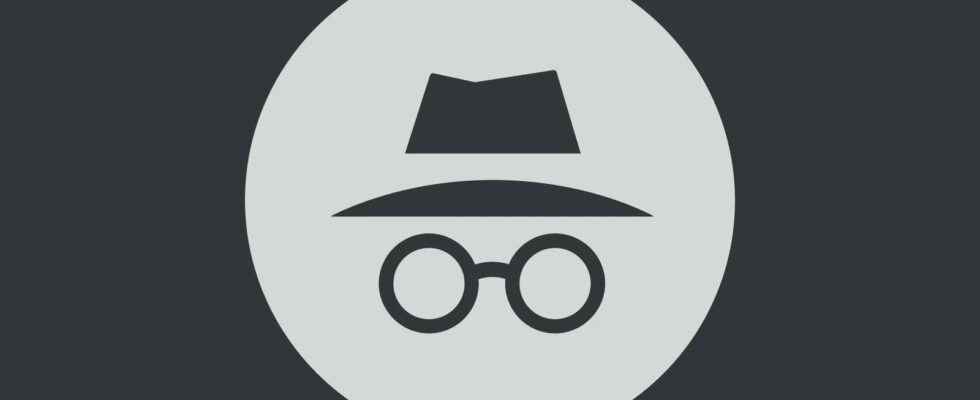In recent years, most Internet browsers have added a private browsing mode to protect users’ lives. Characterized by dark color themes and hidden character icons, these modes can make the user feel like they are browsing anonymously.
You will also be interested
[EN VIDÉO] How does the internet work? A little, a lot, daily… More and more of us have Internet access and we spend more and more time there. But do we really know how it works? It is thanks to the Internet that you can enjoy this episode of Kézako, in which Unisciel and the University of Lille 1 explain to us how the Internet works.
Researchers from the University of Chicago and Leibniz University of Hannover found that many users believe that private browsing protects them against malwareadvertising, tracking scripts and monitoring by internet service providers Internet. Nothing could be further from the truth. Here’s what Private Browsing does and doesn’t do.
Private browsing protects against third-party cookies
The Cookies, that data stored on your device that allows websites to keep track of user information, keeps you logged in to your online accounts despite closing the tab or browser. For some websites, the Cookies also keep track of the settings you configure, such as language, layout, and themes. Private browsing is designed to avoid keeping traces of your browsing session on your computer. So when you open a window private, cookies from your main browser window are not transferred. And when you close the private browsing window, all cookies generated during your session are destroyed.
In theory, without cookies, websites cannot identify you. Opening a new incognito window should therefore make you appear on the Internet as a new user. In practice, however, websites can still discover your identity by correlating other information, such as your IP adress, device types and browsing habits (time of day, pages visited, etc.). Private Browsing does not hide any of this data. Big tech companies like Facebook and Google have a lot of user information, and by connecting the dots, they can identify you, even if you haven’t logged into your account.
When you close an incognito window, your browsing history, your Passwords saved and the content you type in the text fields (usernames, phone numbers, etc.) for this window are cleared. This means that the next person who sits down in front of your computer and launches the browser will not be able to know which websites you visited during your private browsing session. But if you bookmark a page when you’re in private browsing mode, it will be added to your normal browsing page’s bookmarks and will be visible to everyone. Also note that files you download to your computer while in private browsing will not be deleted when you close the window.
Your ISP can see what you’re doing in Private Browsing
This is one area where private browsing does not protect you at all. Your ISP, your company or school network administrator, and government agencies will be able to track your browsing habits, regardless of the browsing mode you use.
Inasmuch as bridge to the internet, ISPs and network administrators monitor your traffic at the network level and can track the websites you visit, whether you are in normal or private browsing mode. Many ISPs share this type of information with advertising companies who, in turn, use this data to serve you relevant advertisements.
To hide your internet traffic from surveillance and control, you can use a virtual private network (VPN). The vpn encrypt Internet traffic and pass it through a server third party, which then directs it to its destination. Your ISP will know that you are using a VPNbut it won’t be able to know which websites you visit.
Although VPNs protect you from ISP snooping, most collect your information and are susceptible to security vulnerabilities. For a privacy absolute, use the Tor browser. Tor encrypts your traffic and bounces it around multiple computers, called knots Tor, before reaching its destination. None of the Tor nodes have complete information about the source and destination of your internet traffic and can spy on you. Tor is more private than VPNs, but it’s also slower.
Private browsing does not protect against malware
But most malware causes harm after it’s installed on your computer, and malicious websites harm you no matter how you browse. For example, if you open an email from phishing and download a malware-infected attachment while browsing in private mode, you will not be protected (by your browsing mode). Similarly, Private Browsing won’t protect you against malware already installed on your computer: a keylogger, for example, which silently monitors your keystrokes on the keyboard and sends them to a hacker’s server. To protect yourself against malware, you will need a anti-virus.
Malicious extensions, i.e. third-party functions that you add to your browser, are an exception to this rule. Some hackers hide malware in browser extensions and can steal your credentials or mine cryptocurrencies. edge, Chrome and Opera disable extensions by default, which protects you against malicious browser extensions that may have found their way to your browser. others browsers do not disable extensions in incognito, but it only takes a few clicks to do it manually.
Private Browsing is a very useful and convenient tool for a quick surf session that won’t leave traces on your computer. With a few caveats, it protects your privacy from others using your computer and reduces some of the information you reveal about yourself when visiting websites. But private browsing won’t make you anonymous or protect you from big business surveillance and spying. For that, you will need real privacy protection tools.
Interested in what you just read?
